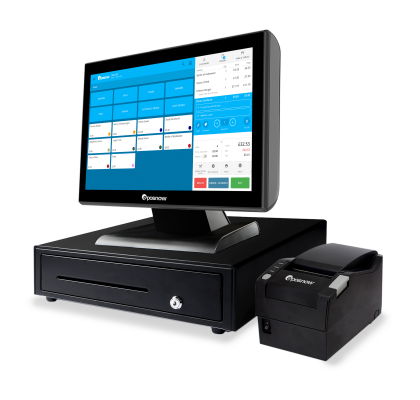How to Create a More Inclusive Workplace
A topic that is becoming increasingly important in today's businesses - creating an inclusive workplace is vital for success. And like every good business owner, you will probably want to create a workplace that is inclusive for everyone within your company.
But what does that actually mean? How do we define inclusivity, and make sure that your workplace is truly inclusive for all employees? Fortunately, we've got the answers. So let's take a look at what an inclusive workplace looks like, and some tips on how to create one.
What is the definition of inclusivity in the context of the workplace?
Inclusivity in the workplace refers to policies, practices, and behaviours that promote a fair and equal work environment for all employees, regardless of their background or identity. This includes things like gender, race, ethnicity, religion, age, disability, sexual orientation, and more.
An inclusive workplace is essentially one where all employees feel comfortable and respected, regardless of their background or identity. This means creating a workplace culture where everyone has a sense of belonging, feels like they can be themselves, and understand that their voices will be heard and valued.
What is workplace culture?
Workplace culture is the set of values, behaviours, and attitudes that characterise a company or organisation. It's what makes your business unique, and includes things like your mission statement, core values, and how you interact with employees and customers.
Make a POS system welcome in your business:
Epos Now solutions provide state of the art retail technologies, syncing with integrations to organise employee overtime, manage payroll, provide insightful staff reports and more.
Epos Now can help you boost your retail or hospitality business from one, cloud-based system, whether you're on the go, at home or in the office.

What are the benefits of creating an inclusive workplace environment?
While an inclusive workplace is extremely beneficial for the growth and development of employees, ingraining inclusivity into the workplace culture can also have massive benefits for businesses.
It helps to attract and retain top talent
Employees want to work for companies that value diversity and inclusivity, and where they feel like they will be respected regardless of their background or identity. Inclusive workplaces are also shown to have higher levels of employee morale, engagement and satisfaction, which leads to increased productivity and innovation.
It boosts the bottom line
Studies have shown that businesses with diverse and inclusive workplaces are more successful financially than those without. In fact, companies in the top quartile for racial and ethnic diversity are 35% more likely to have financial returns above their respective national industry medians [1].
It helps you tap into new markets
If your workplace is truly inclusive, it will reflect the diversity of the world around us. This not only helps you better understand and relate to the people you serve but also allows you to tap into new markets that you may have previously been excluded from, thus extending reach, profits and loyal patrons down the line
 How to create an inclusive workplace culture
How to create an inclusive workplace culture
While there are so many reasons why it is important to create an inclusive workplace culture, If you want to create and maintain inclusivity throughout the workplace, there are a number of steps you need to follow in order to to get started.
Lead by example
As the leader of your company, it's important that you model inclusive behaviours. This sets the tone for the rest of the organisation, and employees will be more likely to follow suit if they see you leading by example.
Evaluate your current workplace culture
Do a self-assessment of your company's current workplace culture. This will help you to identify any areas that may need improvement in order to make your workplace more inclusive for all. You can assess your workplace culture in a number of ways, such as conducting surveys or focus groups with employees or doing a literature review of research on workplace cultures.
Ensure your core policies and practices are non-discriminatory
This includes things like your hiring practices, compensation and benefits packages, promotions and advancement opportunities, and more. All of these policies and practices should be fair and equally accessible to all employees. Employing strategies like double-blind hiring, where names and other identifying information are removed from resumes during the initial screening process, can help to ensure that everyone has an equal shot at getting the job.
Communicate with your employees
Make sure that your employees know that you value inclusivity and that you are committed to creating a workplace where everyone feels comfortable and respected.
You can increase communication by hosting regular company-wide meetings, introducing suggestion boxes, sending out monthly newsletters, or having an open-door policy where employees feel like they can come to you with any concerns or suggestions.
Provide training and educate your employees on inclusivity
It’s crucial to openly embrace diversity and make sure that your employees are aware of what inclusivity means and why it is important. This can be done through things like regular training sessions or workshops on inclusivity, as well as incorporating it into your onboarding process for new employees. Communicating openly about diversity and inclusion ultimately helps to achieve a more inclusive workplace culture.
Make sure that your employees have the opportunity to grow and develop in their careers by providing training and development opportunities that are inclusive and accessible.
Be an ally
In simple terms, being an ally refers to supporting someone else's journey, without expecting anything in return. Contextualised in the workplace - if you’re not a part of a marginalised group, use your privilege to help those who are. This includes things like being an advocate for employees from underrepresented groups, speaking up when you bear witness to discriminatory behaviour or microaggressions, and using your platform to promote inclusivity overall.
Hold everyone accountable
It is important to hold employees accountable for their words and actions, in order to maintain a respectful and inclusive work environment. This includes things like having a zero-tolerance policy for any type of discrimination or harassment and making sure that all employees are aware of these policies and receive regular training on them.
Include a powerful POS system at your workplace
Epos Now offers state-of-the-art POS systems for businesses in retail and hospitality. We let you choose the tools and insights to help your business achieve its goals. Designed to work as a complete business management system, you can control all vital aspects of your company from one cloud-based system.
- Review auto-generated profitability reports based on individual product performance, trending items and best and worst sellers.
- Access a multi-award-winning inventory management system that syncs online sales and in-person sales for the most up-to-date stock levels.
- Simplify employee management with staff sales reporting, automated scheduling and online payroll.
- Make CRM a breeze with scheduled communications and loyalty programmes.
If you're interested in including inclusivity across your company, we'd love to hear from you!



